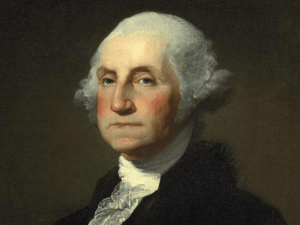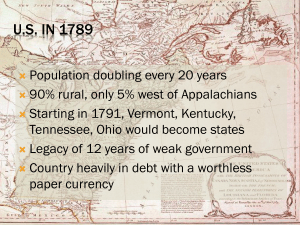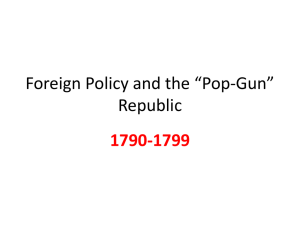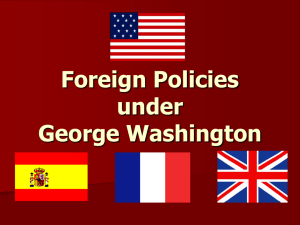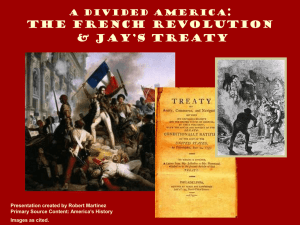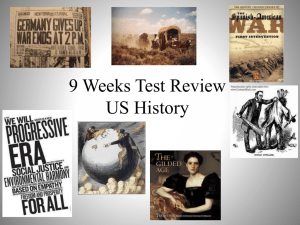Creating a Foreign Policy
advertisement
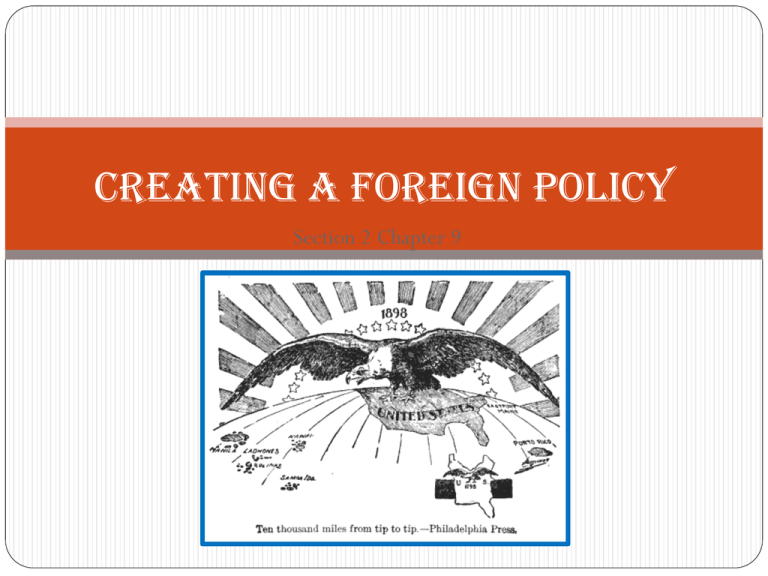
Creating a Foreign Policy Section 2 Chapter 9 Start of a New Revolution… 1789: French Ship arrive in the U.S. July 14: Paris. Bastille was destroyed. Start of the French Rev. Louis XVI: Peasants/Middle Class heavily taxed. Nobles paid none. American Support. Big support at 1st. France was their 1st Ally. Knew the fight for liberty. Marquis de Lafayette: French Reformer who fought during the Amer. Rev. Loved by many Americans. 1793: French Rev gets to violent. Radical reformers gain control. Reign of Terror: Tens of thousands of French citizens were executed. King and Queen beheaded. Guillotine: Death Machine. Division amongst Americans… Thomas Jefferson: Continued to support their cause. Violence may be needed to win freedom. Condemned the executions of the King and Queen. Hamilton/Adams: Opposed the way the Fr. were doing things. “One cold no more create democracy through widespread violence, than a snowball can exist in the streets of Philadelphia under a burning sun”. John Adams. Foreign Policy… F.P: The Actions that a nation takes in relations to other nations. Difficult Decision: Stay Neutral: Not taking sides in a conflict. Treaty: France was our ally. Wanted to use ports to supply ships & launch attacks on the British. How can we honor treaty with Fr. and remain neutral during the European conflict? Divisions in the Cabinet… Issue of the Treaty: Hamilton: Treaty was with King Louis XVI. No longer valid: Dead. Jefferson: (Fr. Supporter) Urged strict acceptance of the treaty. Result: Neutrality Proclamation: April 1793: Would not support either side in the war. Forbade Americans from aiding either Br. or Fr. 1793: Br. Captured over 250 American ships trading in the French West Indies. War? Were we strong enough? Chief Justice John Jay: Sent to Br. to negotiate. Result: (1795 approved) Br. Pay damages for the ships they seized. Br. gave up forts they held in the West. Amer. had to pay debts long owed to Br. Merchants. Goodbye to the 1st… Washington Retires: 1796: Farwell Address: Advised Americans against becoming involved in European Affairs. Did not oppose foreign trade. Rejected alliances that could drag the country into war. His advice guided the Amer. Foreign Policy for many years. Checking for Understanding… What is Foreign Policy? What did the Neutrality Proclamation act of 1793 do? Who was John Jay and the Jay Treaty? The actions that a nation takes in relation to other nation. It stated that the U.S. would remain neutral and support neither France or Great Britain in their war, and forbade Americans from aiding either side. Chief Justice who was sent to Gr. Britain to negotiate over the British capturing American merchant ships.
